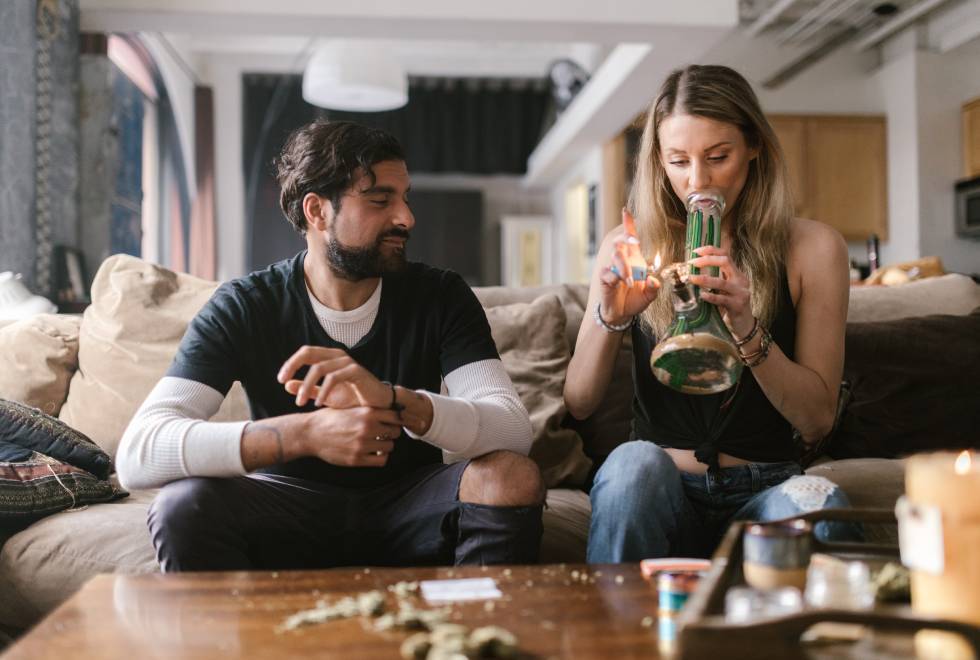A step-by-step guide for those who want to try to help. Part II

Dependency never shows up alone… It brings along its close relative – codependency. Therefore, today, when looking for solutions to the problem, we are going to shift the focus from the person you are worried about onto… you.
Yes, we know that it is your loved one who is drinking (using drugs, gambling, doesn’t take care of their health, works day and night, etc.). But the person who is enabling all that is always in the same coordinate system with the addict – not outside of it.
Most likely, you have already tried all sorts of approaches. You probably have created a certain scenario in which there are different elements: an appeal to conscience, quarrels, ultimatums, guilt trips, tears, promises, broken promises, etc. Each new conversation proceeds according to the usual pattern with minor variations.
The person who starts these conversations is also inside the addiction scenario, not outside of it. You may feel that somehow you find yourself again and again in the same rut – and nothing changes.
Why is it so? You are trying very hard to change things!
In a broad sense, codependency is a pathological involvement in the life of another person. You may be completely focused on them and depend on their behavior and actions.
A codependent person is in a relationship with people who have any kind of addiction. While trying to cope with the difficulties of a partner (daughter, son, brother, sister, parent), a person does not notice how ineffective behaviors (patterns) are being developed.
In most cases, codependents take on the role of rescuers, trying to drag their loved ones out of the swamp, even against their will. There is a need to control the behavior of the loved one because the codependent is certain that “Only I can stop this”…
Codependents have a huge, inflated sense of guilt and duty. They feel responsible for other people, for their behaviors, successes, and failures. They often feel themselves in a sacrificial position (“This is my cross”, “I have to endure it”, “I will lay down my life to save him/her”) or in a rescue position (“I must return him to normalcy!”, “My task – is to get her out of this trap at any cost”).
You can test yourself for the degree of codependency with a few simple questions:
- Do you often solve the problems of your partner/dependent family member?
- Do you feel the need to control your dependent family member (their behavior and actions)?
- Do you feel responsible for their mood/condition/health?
- Do you have a feeling that if you don’t get involved, don’t help, then something bad will happen, everything will become terrible?
- You have no contact with your desires (“I don’t know what I want”, “I want him to start/stop…”, “I do not want anything”).
- Do you often speak the words “I must” – internally or out loud?
If you answered “yes” more than two times, the problem of codependency is present in your life. If more than four times – then something urgently needs to be done about it.
Self-therapy can be an essential tool for personal growth and self-improvement.
Browse through our courses and see the positive changes they can bring to your life.
You are not sure where to begin?
In fact, codependency, like addiction, gradually erases the original traits of a person’s personality. The person stops living by themselves, by their own interests. They do not even know who they are – outside the relationship with the addict.
Why are we talking about you and your codependency so much today? It’s simple. As soon as you change your behavior, take a different position, and start reaching out to your loved one from an independent part of yourself, the chances of a positive outcome of the conversation will greatly increase.
Today we will continue to prepare for a conversation with your loved one about their problem. Here’s what you need:
- Remember what has already been tried before and did not bring any result (shouting, swearing, blaming, etc.). Try not to fall into the same “rut” (the usual pattern).
- Leave the role of the eternal rescuer and enter the role of an equal partner: you are not “saving”, but you are trying to solve the problem. Together.
- Do not think that the result of the conversation depends only on you – in this case, you will inevitably be disappointed if the result is not what you imagined. Look at it from the perspective of “I am doing my part to solve the problem.”
- Yes, you have already tried many things and they didn’t work. It may not work this time either. To save your time and take care of yourself, think about how many new attempts you are willing to make.
Our goal is to reduce the risks of slipping into a habitual negative scenario and increase the likelihood that the dialogue will pay off – that you will be heard and that it will be possible to create a plan for solving the problem of addiction together with your loved one.
Let’s continue our conversation in the next article.
Help us grow on Instagram 👇